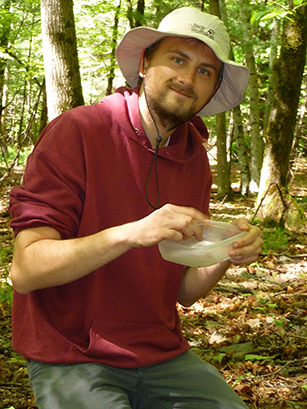Philip Kohlmeier
Assistant Professor

About Dr. Kohlmeier
Dr Kohlmeiers research focuses on the epigenetic, transcriptomic, neurogenetic, and physiological mechanisms that modulate behavior, and on understanding how these mechanisms could have evolved. His lab utilizes two different model systems to address these questions: Firstly, social hymenopterans. In the colonies of e.g., ants, bees, and wasps, individuals specialize on different tasks such as reproduction, brood care, and foraging. The Kohlmeier lab aims at understanding how task specialization is regulated by gene expression, sensory neurons and by the behavior of other colony members. Secondly, the fruit fly Drosophila melanogaster. Female flies can impact offspring phenotype through transgenerational effects, e.g., by depositing maternal mRNAs into the developing oocyte. The lab is interested in understanding how the nervous system of the female integrates environmental information and adapts maternal mRNA populations and how these maternal mRNAs impact offspring phenotype. To answer such questions, the Kohlmeier lab uses a broad range of techniques including field studies, behavioral experiments, RNA-sequencing, neurophysiological recordings, genetic manipulations using the neurogenetic toolbox of Drosophila melanogaster, transgenetics, and pharmacological manipulations.
Education
B.S. Biology, Bielefeld University, Germany; M.S. Biology, Johannes Gutenberg University Mainz, Germany; PhD Johannes Gutenberg University Mainz, Germany; Postdoc Groningen University, Netherlands
Research Interests
- Neurogenetics
- Behavioral genetics
- Sociobiology
- Evolution of behavior
- Molecular ecology

